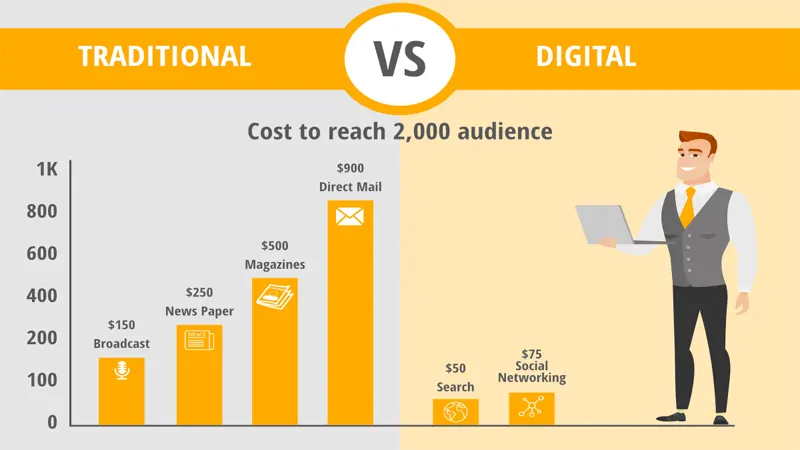Digital Economy
The digital economy refers to the economic activity that results from billions of daily online connections among people, businesses, devices, data, and processes. It refers to a new era of economic growth, driven by the Internet and related digital technologies, which are changing the way people live and work.
The digital economy is a rapidly growing and evolving space that has completely transformed the way businesses operate and compete. From e-commerce and online marketplaces to social media and cloud computing, the digital economy encompasses a wide range of activities and technologies. The term “digital economy” was first introduced in the late 1990s and has since become a critical component of the global economy.
Growth and Development
In the digital economy, information and communication technologies (ICTs) play a central role in facilitating economic growth and development. The widespread adoption of these technologies has enabled businesses and individuals to access vast amounts of information and connect with others in real-time, regardless of their location. This has led to the creation of new business models and markets, and has transformed the way goods and services are produced and consumed.
Innovation and Collaboration
One of the key features of the digital economy is its emphasis on innovation and collaboration. The digital economy fosters innovation by enabling businesses and individuals to quickly and easily share ideas, knowledge, and information. This, in turn, helps drive the development of new technologies, products, and services. Additionally, the digital economy encourages collaboration between businesses, governments, and individuals, as well as between countries, by breaking down traditional barriers to communication and collaboration.
Global Economy
The digital economy is also characterized by its global reach. Businesses and individuals can participate in the digital economy from anywhere in the world, providing new opportunities for economic growth and development. The digital economy has created new markets and has increased access to goods and services, making it easier for people to participate in the global economy.

In recent years, the digital economy has grown at an unprecedented pace, driven by advances in technology, increasing Internet connectivity, and the rise of mobile devices. The growth of the digital economy has created new job opportunities and has also helped to drive economic growth and development in many countries.
Benefits of Digital Economy
Despite its many benefits, the digital economy also presents some challenges. For example, the rapid pace of technological change has created new risks and challenges for businesses and individuals, particularly in terms of data privacy and security. Additionally, the digital economy has created a new digital divide, with some countries and individuals having limited access to digital technologies and the Internet, which can limit their ability to participate in the digital economy.
Overall, the digital economy has had a profound impact on the global economy, transforming the way businesses and individuals interact and participate in the global marketplace. As the digital economy continues to evolve, it will likely continue to drive innovation, growth, and development for many years to come.
User of Digital Economy in Pakistan
In recent years, Pakistani’s government has shifted its focus towards digitisation and building a knowledge economy. Multiple concerned ministries, regulatory bodies, ad hoc committees, and task forces are working hard to facilitate digital transformation within the country. With over 64% of Pakistan’s population being under the age of 30, there is enormous potential for successful digital adoption, however, Pakistan continues to lag behind.
As efforts are being made to speed up digitisation, regulatory concerns have become ever more pressing, including regulations around cloud computing, data protection, and cyber security. Balancing protective regulation with an environment that encourages innovation and digitisation, will enable Pakistan to make the most of new technologies.
CERP Policy Advisory works with local and international stakeholders to develop a deep understanding of the policy and regulatory landscape in Pakistan and advise on high impact policy reforms to enable digital transformation.
Submit by: Uzair Ahmed
